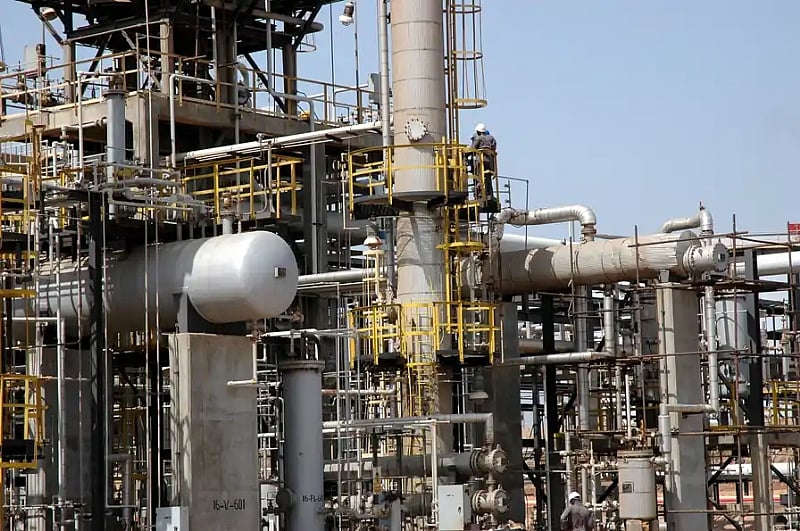The Tema Oil Refinery (TOR) is gearing up for a major comeback, with full operations expected to resume by October 2025.
Officials believe this will sharply reduce Ghana’s reliance on imported refined petroleum products and save the country hundreds of millions of dollars every month.
During an appearance before Parliament’s Energy Committee, TOR’s Acting Managing Director, Edmund Kombat, revealed that Ghana currently spends close to $400 million monthly on fuel imports. He said this figure could drop significantly once TOR is fully operational.
“We spend $400 million every month importing refined petroleum products. When TOR is running, we will need less than 60% of that money to import refined petroleum products,” Kombat told members of the committee.
He explained that while TOR was originally built to refine 45,000 barrels of crude oil per day, recent upgrades, including the installation of a new furnace, have increased its capacity to 60,000 barrels daily. With Ghana consuming about 100,000 barrels of fuel each day, TOR could soon meet as much as 60 percent of local demand.
Kombat rejected the notion that the refinery’s shutdown in 2021 was the result of inefficiency, stressing that the issue was a shortage of crude oil.
“The refinery is a profitable enterprise; it is capable of refining. There have been many turnaround maintenance works that have taken place at the refinery. The reason it was shut down in 2021 was actually because of a lack of crude,” he stated.
To ensure the facility returns to full capacity, TOR has established a Turnaround Maintenance Committee. The group, led by the General Manager of Maintenance and supervised by the Deputy Managing Director, meets weekly to track progress and resolve bottlenecks. Kombat said the Crude Distillation Unit (CDU) is expected to be back online by September or October.
“From the timeline that we are seeing, between September and October, we should get the CDU [Crude Distillation Unit] back on stream,” he said.
He also acknowledged that TOR has been without audited financial statements since 2019. However, he assured the committee that external auditors had been contracted to clear the backlog.
“Another key thing is that for the past six years, the refinery has not had audited accounts since 2019. We’ve brought in external auditors and they are busily working. We are hoping that by next month, we’ll have all six audited accounts to present to SIGA and also give copies to members of the committee,” he disclosed.
As part of TOR’s 2025 roadmap, attention is also being directed toward reviving the refinery’s Residue Fluid Catalytic Cracker (RFCC) by the end of the year or early 2026. Described as TOR’s most profitable unit, the RFCC transforms residual oil into high-demand products like LPG and premium gasoline.
“The CDU is easier to bring on stream. The RFCC may come around December or early next year, but the CDU will be on stream between September and October. Our target is ambitious, but achievable,” Kombat assured.
He ended his presentation with a plea for bipartisan support from Parliament to restore Ghana’s only refinery to full capacity. “It’s the people’s refinery, and we are praying that you add your voices to get this plant back,” he urged.


